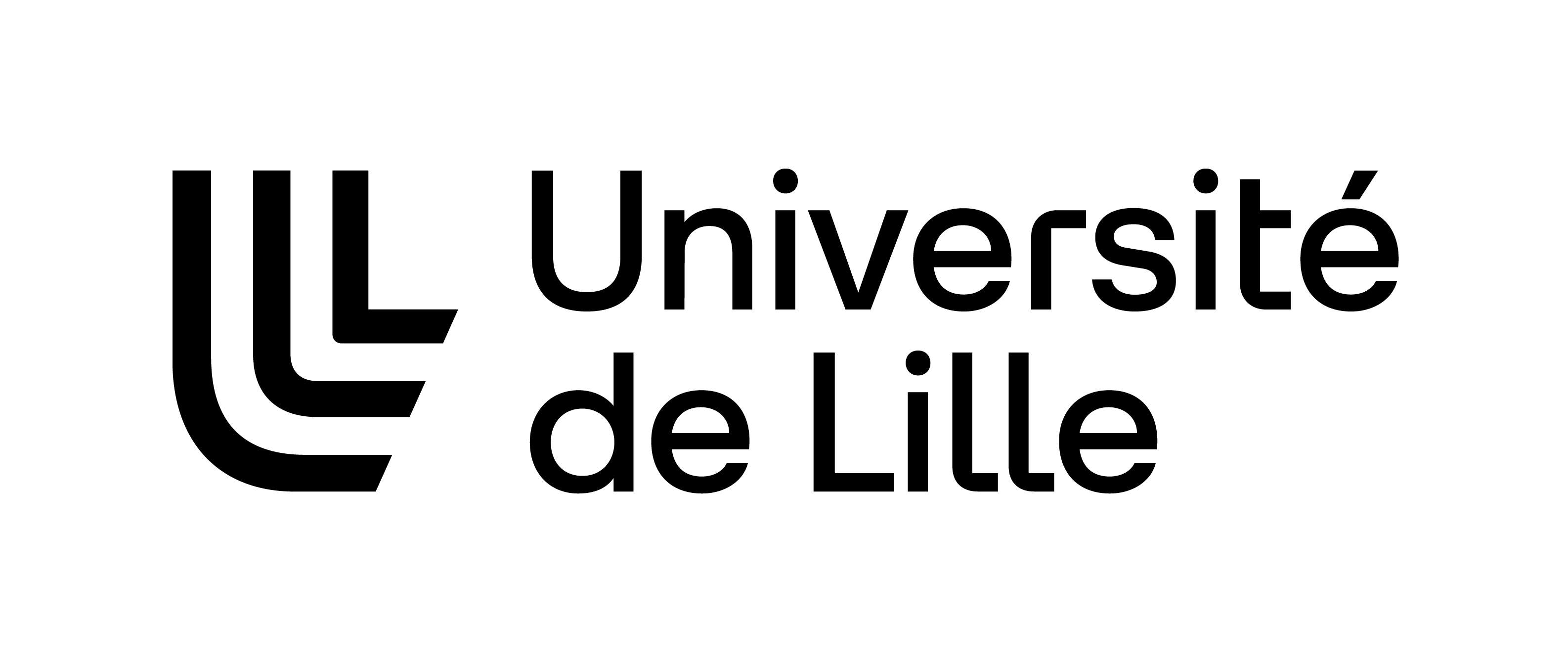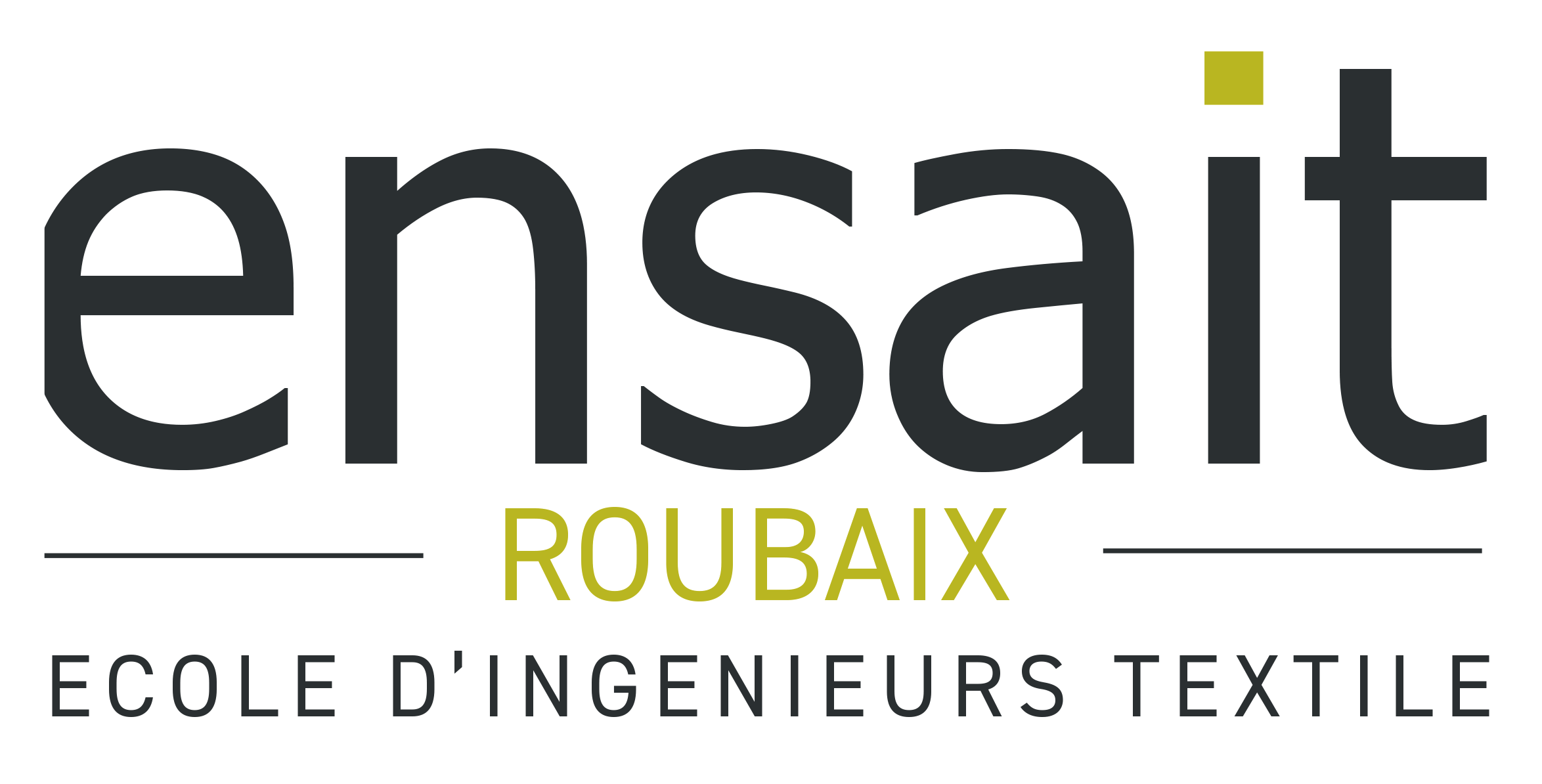-
Chemistry and Materials
Textile research laboratory (GEMTEX)
Research unit - EA2461
The GEMTEX research laboratory is internationally recognized as one of the main actors in textile research. Our research focuses on textile materials and processes and involves scientific disciplines related to mechanics, process engineering, polymer chemistry and automation, with four transversal axes: functional textiles, production and uses, reinforcements and composites and sustainable textiles. GEMTEX also has at its disposal an important instrumental park regrouped within 4 internal platforms. We are open to all academic and industrial collaborations and propose services in line with our expertise.
-
Xianyi Zeng
Director
2 allée Louise et Victor Champier
59056 ROUBAIX

Effectif
Effectif total : 88
Personnel de recherche : 37
Personnel d'appui à la recherche : 13
Skills
• Textile structures and processes
• Fibrous materials
• Complex polymer systems
• Thermal and rheological properties
• Nano and micro particles in a polymer system
• Functional fibers and coatings
• Reinforcement development processes: "3D reinforcement"
• Thickness reinforcement
• Stitching reinforcement
• Mechanics of fibrous structures
• Composites
• Optimization of the textile supply chain
• Smart textiles (textile sensors and actuators, on-board health decision support system)
• Digital textiles and clothing
Example(s) of projects
• Creation of an intelligent digital platform for the creation of personalized clothing
• Development of smart and connected textiles (sensors, actuators, portable systems)
• Development of innovative multifunctional textiles (fibers, threads, fabrics, etc.)
• Sustainable development for the textile sector (life cycle analysis, recycled materials, biosourced materials, eco-design...)
Example(s) of publications
• V.Kumar, L. Koehl, X. Zeng, D. Ekwall. Coded yarn based tag for tracking textile supply chain. Journal of Manufacturing Systems, 2017, 42: 124-139.
• A. R. Labanieh, C. Garnier, P. Ouagne, O. Dalverny, D. Soulat Intra-ply yarn sliding defect in hemisphere preforming of a woven preform. Composites Part A: Applied Science and Manufacturing, 2018, 107 C: 432-446.
• M. Beldi, A.Cayla, N.Behary, A.Perwuelz. Effect of hybrid woven fabric structure on their electrical properties. Journal of Materials Science: Materials in Electronics 2018, 29 (10): 8057–8067
• C. Dufour, F. Boussu, P. Wang, D. Soulat, Local strain measurements of yarns inside of 3D warp interlock fabric during forming process, International Journal of Material Forming, published on line 06 December 2017, DOI: 10.1007/s12289-017-1385-0
Collaborations/Partners/Scientific clients
Université de Valenciennes, LRGP Nancy, IUT Béthune, INSERM Strasbourg, Université d’Orléans, INSA de Lyon, Université du Havre, Université Polytechnique Hauts-de-France, Centrale Lille
International:
University of Borås (Sweden), Mohamed I University (Morocco), University of Monastir (Tunisia), University of Bejaia (Algeria), Soochow University (China), Donghua University (China), Politecnico di Torino (Italy), Mönchengladbach University (Germany), Gheorghe Asachi Technical University of Iaşi (Romania)
Collaborations/Partners/Private Clients
Applications sectors
- Health / wellness
- Transportation / Logistics
- Education / Training
- Trade / Retail
- Materials (Metal, Glass, Ceramic, Composite...)
- Sports / Leisure
- Science / Research
- Textile / clothing industry
Services provided
• Characterization of complex systems
• Development and characterization of multifunctional fibers and nonwovens
• Morphology design and custom structures
• Chemical analysis (IRTF, UV, XPS)
• Microscopy (SEM, TEM)
• Measurement of light intensity
• Environmental assessment (toxicity)
• Eco-design (life cycle analysis and biomimicry)
• Development of sustainable solutions (biosourced materials, use of recycled materials, eco-efficient processes, biotechnologies, etc.)
• Sensory design of textile and clothing products (touch, color, thermal comfort, well-being, etc.)
• Creation of personalized / customized clothing
• Creation and fitting of virtual and sensory 3D clothes
• Control of ease, comfort and emotions
• Modeling and simulation of production, supply chain, sales forecasts, cost estimation, supplier selection, traceability, life cycle analysis, mass customization
• Design of instrumented clothing, physiological signal processing, medical applications
• Creation of digital textiles/clothing
Consulting services
• textile machines (spinning, weaving, knitting, clothing)
• equipment and software for parametric modeling and classification of 3D morphotypes (3D body scan, ScanWorX, RapidForm, Design Concept software)
• equipment and software for virtual fitting and creation of personalized 3D clothing (KAWABATA measurement system, cameras, cutting table, sewing machines, 3D clothing creation software (Modaris 3D Fit, Optitex, Clo3D))
• equipment and software for creating smart clothing incorporating an on-board sensor / actuator system (coating laboratory for the production of fibrous sensors, traction benches, DORNIER loom, stamping machine, ZSK embroidery machine, characterization equipment)
• manufacturing equipment and mechanical characterization of fiber reinforcements
• equipment for creation and characterization of multifunctional textiles (spinning, diffusion, grafting, padding, coating, printing, circular knitting looms, automatic rectilinear and double needle bed knitting, weaving looms and Jacquard looms, braiding machines, mini needling machine, mini card, hollow pin, twistec, perforation bench, profilometer, tensiometer, filtration bench, acoustic bench)
Affiliated institutions / organisations
Partner institution(s)
Groups/Networks/Federations
Doctoral schools
Competitive cluster
Regional strategic areas of activity
- Chemistry and Materials
- Textiles, composites, materials





